After Over 20 Years, Mizzurna Falls is Available in English
Now the obscure PS1 title will reach a wider audience
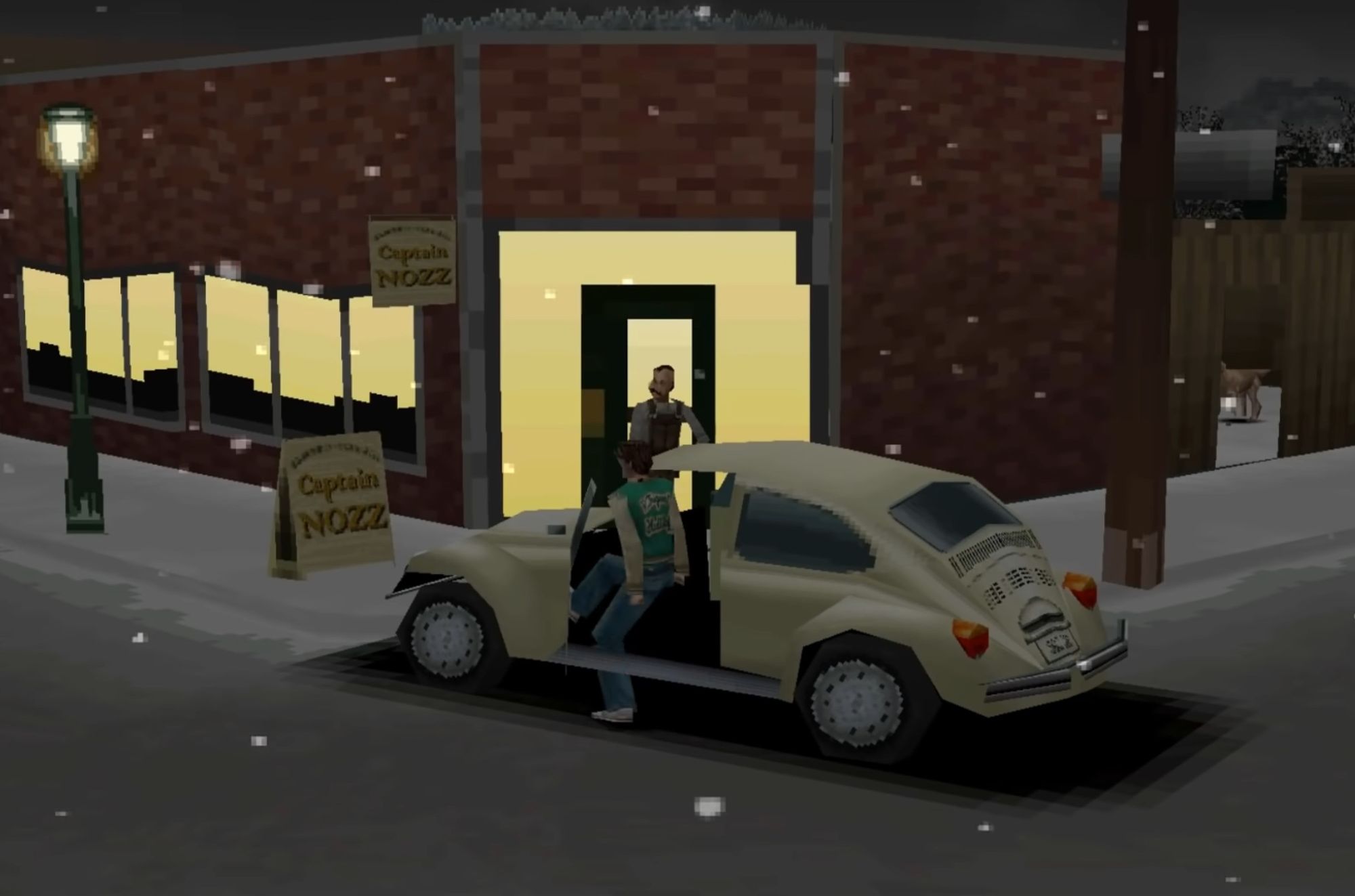
Many Japanese games never received an official western release. A combination of factors might have led to this: the belief there wasn’t a market for it, it was text-heavy, it was released for an unpopular platform, or other particular reasons. Nevertheless, freelance translators and programmers often create translations for games, however obscure, as a passion project. Mizzurna Falls had to wait longer than most.
Snow in the wind
In the mid-1990s, the small Human Entertainment team planned to create a murder mystery title. The game would take place in a mansion, in which the player would have to identify the murderer from a pool of 9 suspects — all within 24 hours.
Human Entertainment contracted a team (three graphic designers and four programmers) at Sun Studio to work on the game. Taichi Ishizuka, the writer and director, and three audio designers were the Human Entertainment contingent on the development team. Ishizuka’s previous credits were The Firemen and The Firemen 2, from 1994 and 1995.
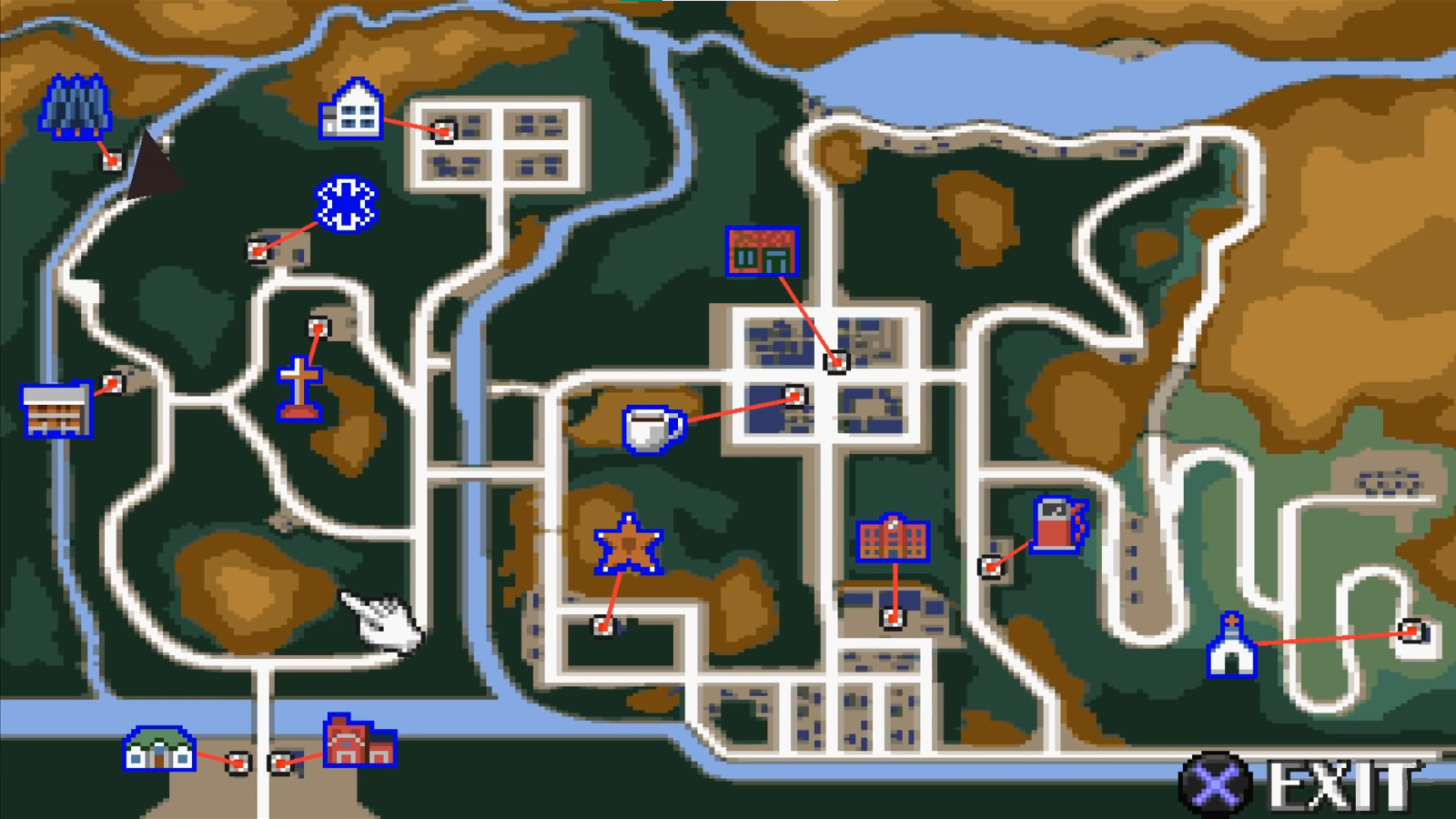
Only a year after development started, the game was ready to be published on the PlayStation. The original premise had changed over the course of the development cycle. Its new setting, a rural American town, might have been influenced by Ishizuka’s 3-month journey from Los Angeles to New York. The developers could not implement certain features such as a logbook, but Human Entertainment hoped the new title would still make a splash. The small video game company was in dire straits.
Letters find ears

Mizzurna Falls reached Japanese store shelves in December 1998. The release date referenced the game’s Christmas 1995 time setting. The game has an in-game time system — 5 minutes of real time equalled 1 hour in Mizzurna Falls — and the player had only a week to solve the mystery. It was made all the more remarkable because it all took place in a 3D open world with a day/night schedules, NPCs with routines, and dynamic events.
Nevertheless, the distinctive project didn’t create headlines in a crowded video game space. Taichi Ishizuka then left the video game industry for good. Not too long after this, he travelled to the Canadian Rockies, where he became a nature guide. Human Entertainment itself also disappeared — it became defunct in 2000.
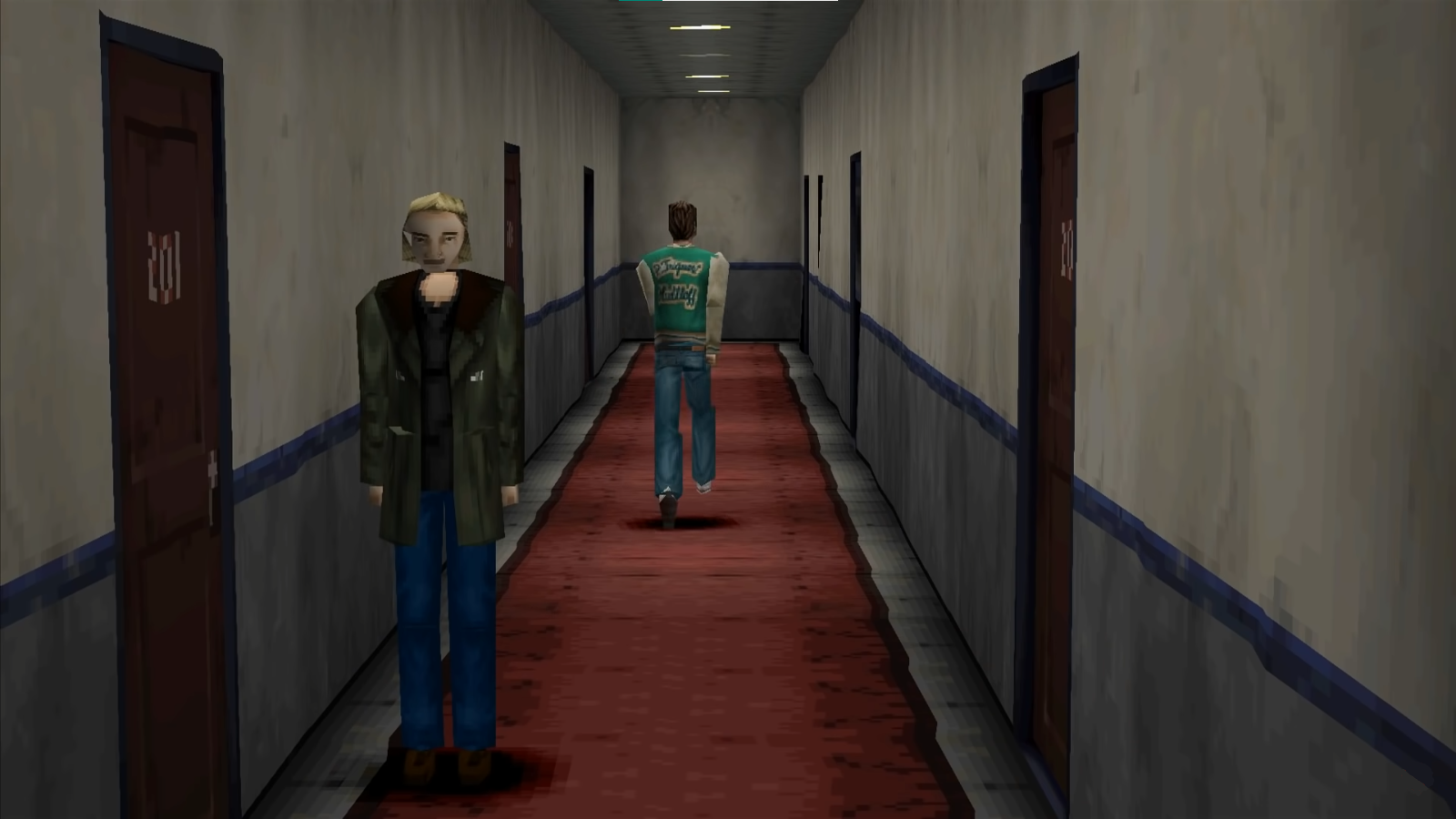
With no genuine support, Mizzurna Falls became a niche product. Although Twin Peaks, its aesthetic twin, was popular in Japan, it garnered little attention beyond the occasional video playthrough. For all intents and purposes, it was almost non-existent for most gamers in the west.
Rediscovery of treasures
Years later, in the 2010s, a Tokyo-based translator, called Resident Evie, searched the internet for a game similar to Deadly Premonition. She was a big Twin Peaks fan, so she wanted to find a mystery game in the same vein. Her quest led her to an old Tumblr post that summarized the plot of Mizzurna Falls.
In 2014, Evie streamed a playthrough of the obscure mystery game. She did a live translation of the story for her viewers while she played through it. Mizzurna Falls’ tale, about a teenager’s investigation into a death and disappearance, reached a different audience through the videos.
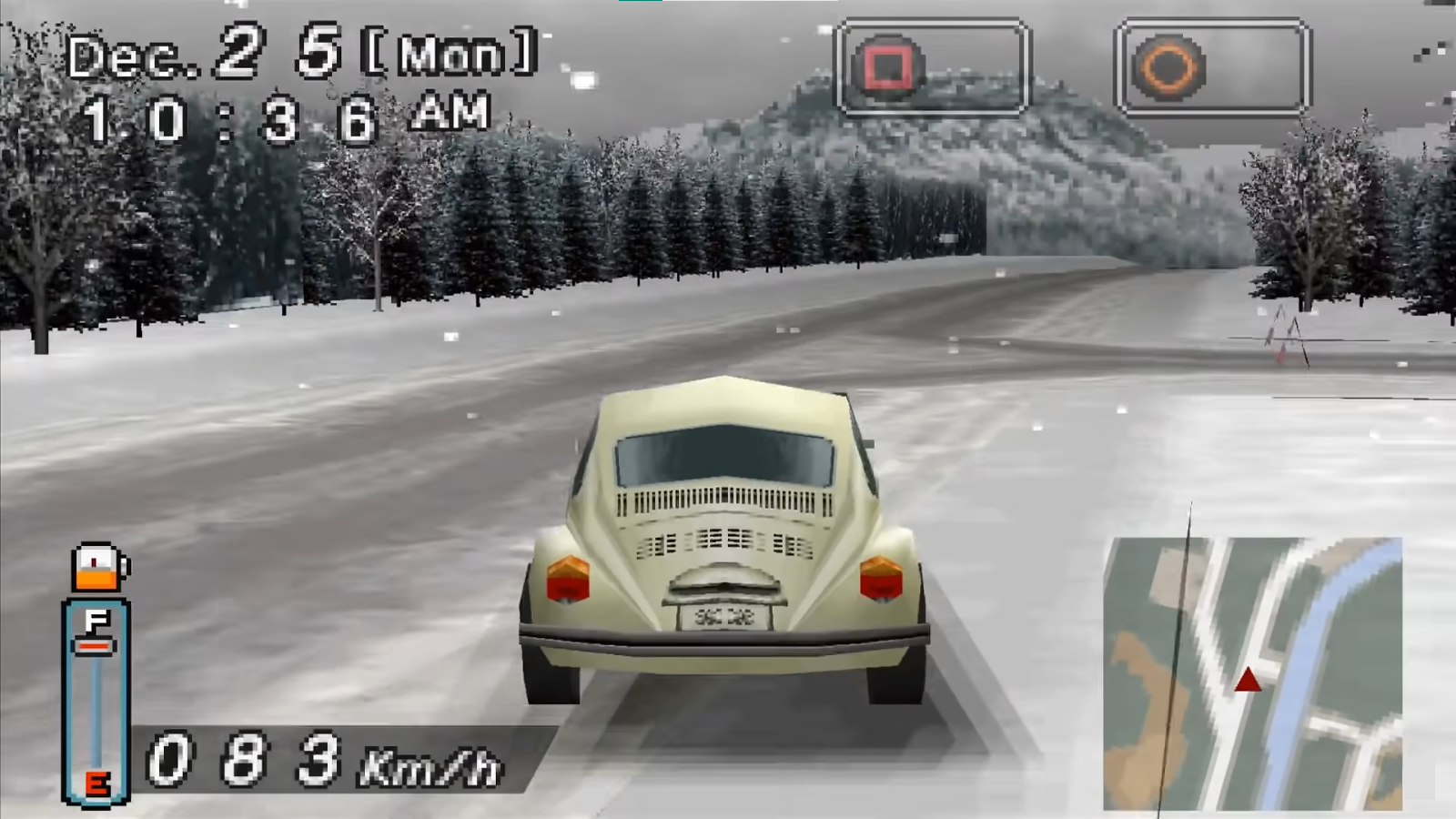
The gripping mystery also captivated Evie. She utilized her expertise to create an English script and game guide, which she posted on the Tumblr page Project Mizzurna in 2017. In May of that year, the independent developer Gemini heard of the project during his own Mizzurna Falls stream.
Gemini reached out to Evie to talk about putting her English text into the game. A new partnership was born. They hoped they could bring an English port to the world.
Impediments to success
After some time, Gemini shelved his Mizzurna Falls project. He had discovered the code was a complex, disordered tangle that could be a massive time sink. He published the code on his GitHub in 2019, so that other developers could pick up the fight.
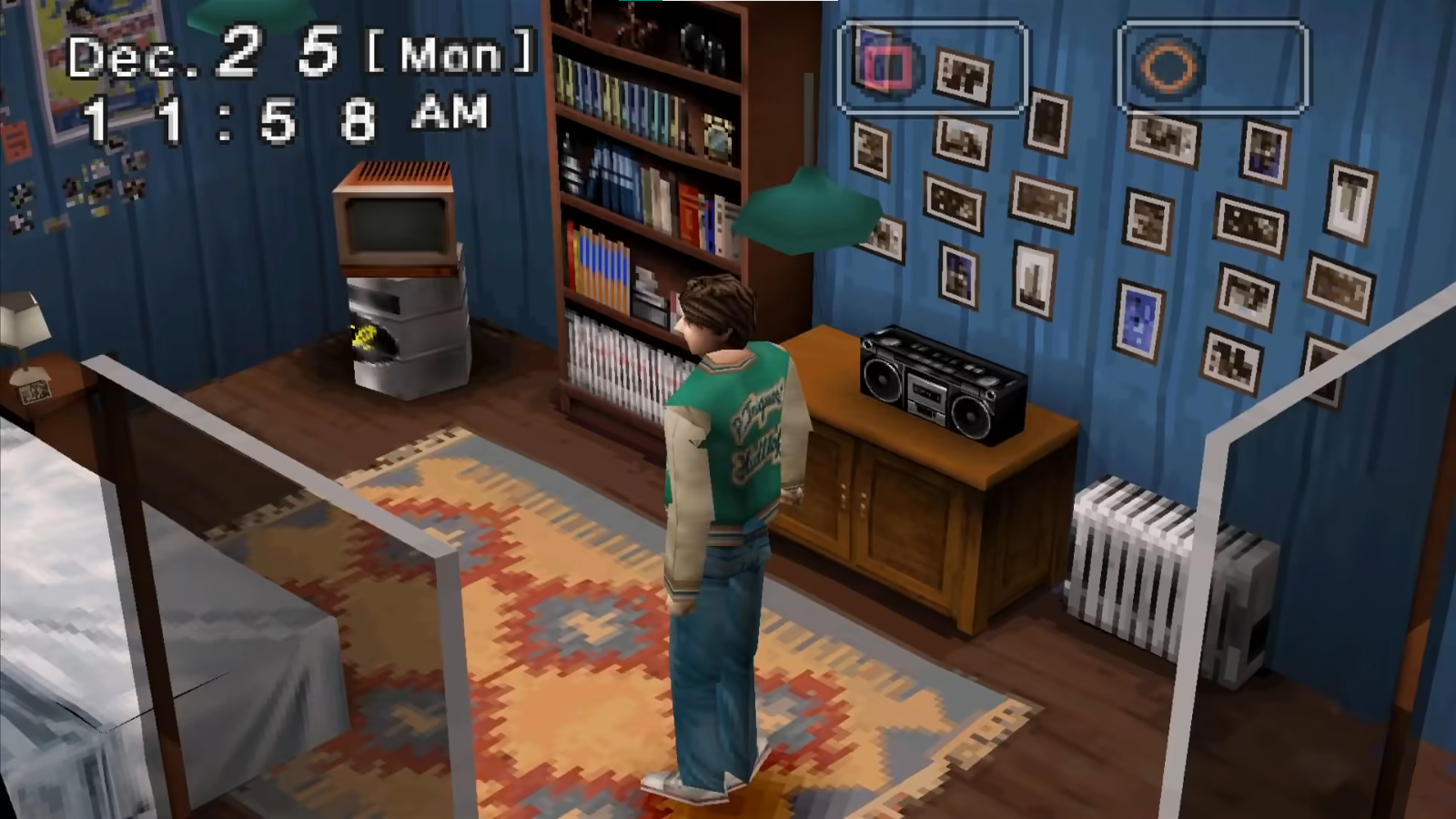
That is where Starplayer came into the picture. He took Gemini’s code, modified it, and released it to the public. This translated version wasn’t perfect: Players often ran into crashes, bugs, and untranslated elements. Gemini initiated a copyright claim against Starplayer’s version because he did not want his name associated with what he described as an “incomplete” project. The world was again without an English version.
Undaunted, a new team came together to try again. Starplayer, Cirosan, and nikita600 turned towards Evie’s English script. The new team worked during the challenging times of the Covid-19 period. Cirosan rewrote, edited, and tweaked the dialogue of the original script. Nikita created a compression algorithm that allowed them to fit more of the new text onto a disc.
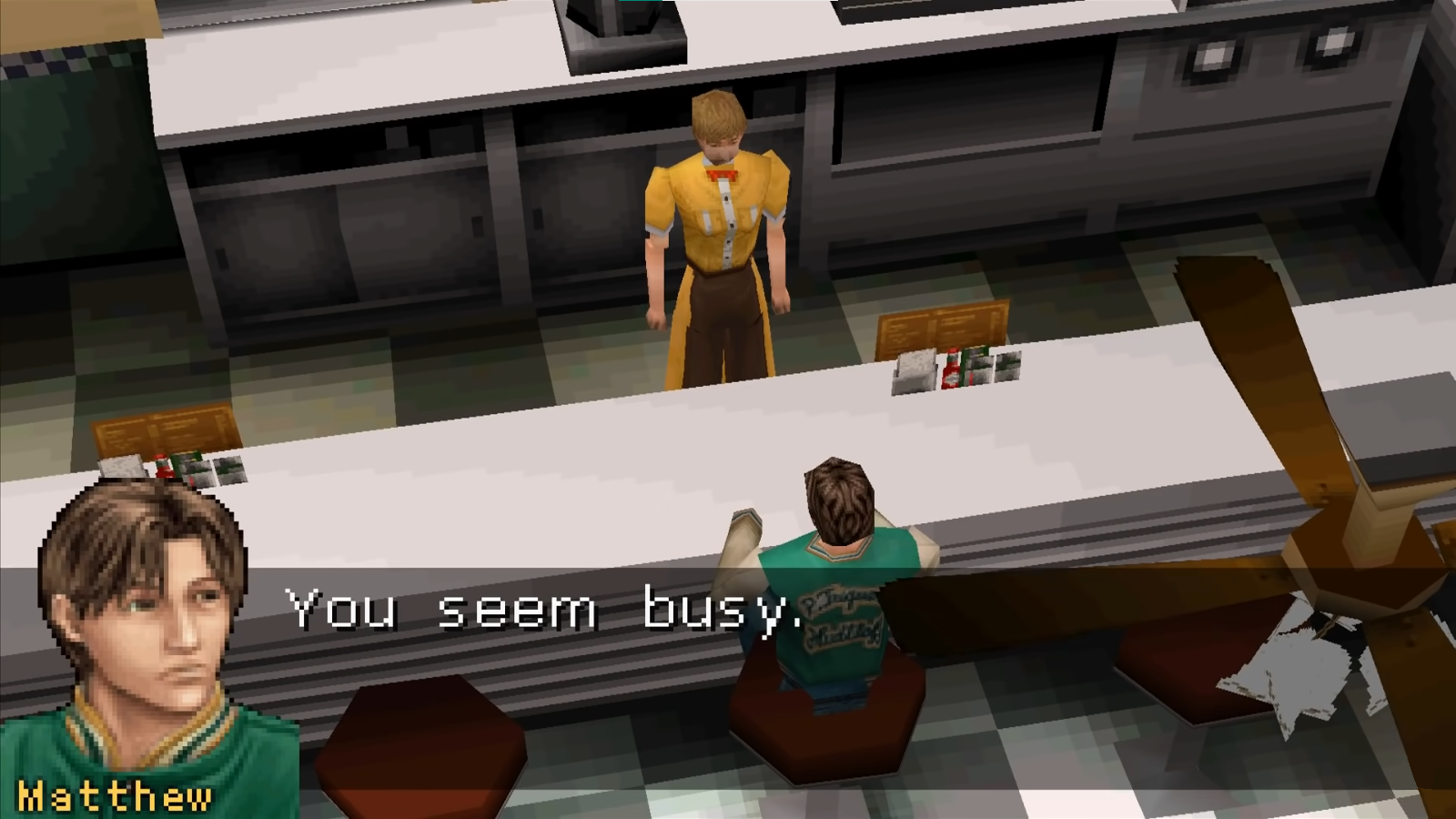
In April 2021, the complete English translation saw the light of day. Owl, a developer on Romhacking, also released their own translated version in the same year. More people than ever could experience the daring designs of Human Entertainment, Taichi Ishizuka, and his unsung development team.